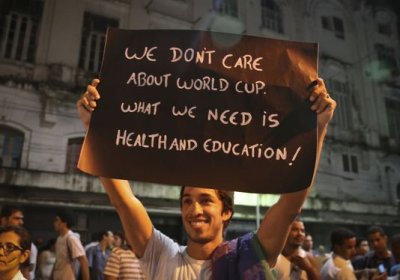NOWSA, or the Network of Women Students Australia, holds a conference every year dedicated to women’s activism. More than 160 students from across Australia gathered last month for its national conference in Perth, making it the biggest NOWSA conference in many years.
The weeklong event from July 14 to 18 took place at Edith Cowan University. It featured a range of workshops and speakers, who focused on issues relating to racism, trans rights and sex worker rights.
Education
Students and staff at the University of Wollongong (UOW) held a forum on August 7 to discuss the impact the higher education cuts proposed by the federal government would have on the university.
The forum was organised by UOW Uncut, a new group of staff and students who are campaigning against the funding cuts.
The anger was palpable among the 60 people who attended the forum, chaired by UOW National Tertiary Education Union branch president Joanne Buckskin, and addressed by NTEU NSW secretary Genevieve Kelly, staff member Alexander Brown, and student Ben Kohler.
Palestine solidarity activists in Britain declared victory on August 4 after the National Executive Council of the Nation Union of Students voted to pass a motion in solidarity with Palestine, and for an arms embargo against Israel, Electronic Intifada reported the next day.
The NEC motion condemned Israel’s lethal assault on and blockade of the Gaza Strip.
Mississippi cuts $1,3 billion from schools, gives $1.3 billion to Nissan
“Since 2008, Mississippi has violated a constitutional mandate to adequately fund the state’s public K-12 schools,” Reader Supported News said on July 23. “Mississippi has spent $648 less per student than it did in 2008. Currently, Mississippi has underfunded its public schools by at least [US]$1.3 billion.
“David Cameron’s government is responsible for the most aggressive attack for over a century on our public services, our standard of living and on the future for jobs and a decent life for young people,” said the Radical Independence Campaign, which is pushing for a “yes” vote in Scotland's September 18 referendum on independence. “The millionaire cabinet are ruining the chances of a generation. By slashing services and privatising health and education they are driving our young people to despair.”
Pasi Sahlberg is an educator and past policy advisor in Finland, author of books on education and currently a visiting Professor of Practice at Harvard University’s Graduate School of Education. He spoke to a meeting of teachers and union activists in Melbourne on June 19.
He agreed with what Australian teachers have argued for years: that great schools are well funded on a needs basis, are not publicly ranked for performance, have small classes, have teachers that are highly regarded and trusted and value all subject areas equally.
If anyone can get the different forces of the Catalan left to unite in support of a common cause, it is Ada Colau. The spokesperson of the anti-eviction Mortgage Victims Platform (PAH) until early May, Colau is almost certainly the most popular and respected social activist in the Spanish state.
On June 26, Colau launched Let’s Win Barcelona platform for next year's May municipal elections in the Catalan capital.
In 2012, Quebec’s student movement carried out a months-long strike, managing to push back and hold off a neoliberal government’s bid to raise tuition fees.
Repeatedly mobilising upwards of 200,000 people at monthly “mega-manifs”, the “Maple Spring” was an all-too rare win against the forces of austerity, and so it captured imaginations around the world.
By criticising the 2014 World Cup and the spending priorities of the Brazilian government, Brazilian football legend Pele has accomplished the rarest of feats in 21st century sports media: he has shown the capacity to shock and surprise.
“It’s clear that politically speaking, the money spent to build the stadiums was a lot, and in some cases was more than it should have been,” Pele said during a lecture at Anahuac University in Mexico City.
The savage cuts to education announced in early May have stirred students into action across Australia.
On May 28, the University of Western Sydney Education Action Group (EAG) held a meeting on the Bankstown campus to organise students, and work with staff to defend quality tertiary education.
With two-thirds of Australian university students living below the poverty line and one in five students skipping meals, students are among the most financially vulnerable sectors.
Taking God To School: The End of Australia’s Egalitarian Education?
Marion Maddox
Allen & Unwin, 2014
248 pages, $29.99 (pb)
To the traditional “three Rs”, Australia has added a fourth ― religion.
Religious private schools, religious instruction in public schools and religious counsellors have found generously-funded favour with successive federal and state governments, writes Macquarie University politics professor Marion Maddox, in Taking God to School.
An estimated 3000 students have rallied in Sydney against the Coalition government's proposal to deregulate university fees. This was part of a national protest organised by the National Union of Students (NUS) on May 21.
On the same day, staff at the University of Technology Sydney, went on strike for 24 hours and joined the protest. They have been in negotiations with the university for increased job security, fairer pay and equity in the workplace.
- Previous page
- Page 37
- Next page




